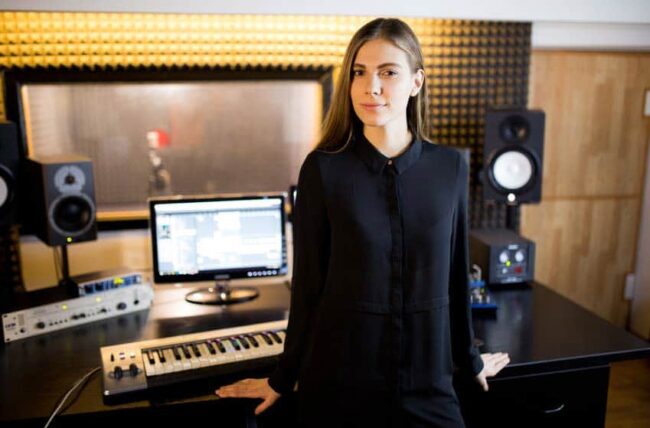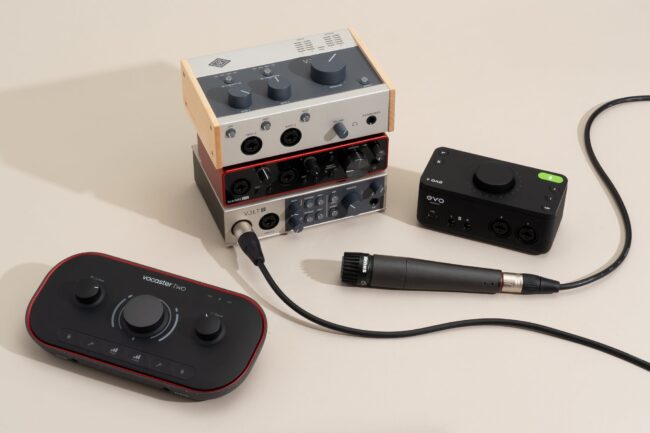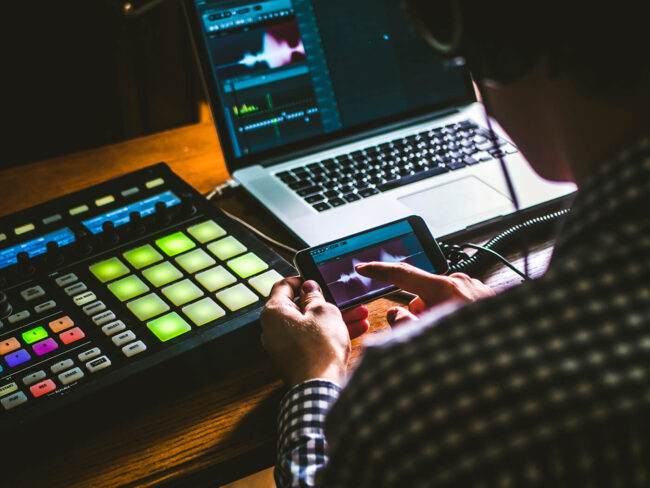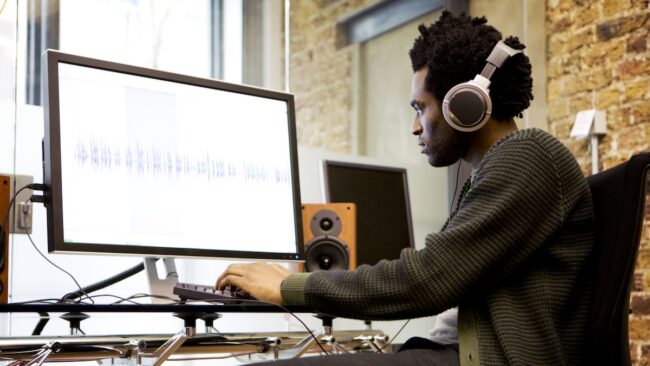In today’s music industry, technology plays a crucial role in the creation and production of music. One of the most essential tools for any aspiring musician or producer is a reliable computer. With numerous options available in the market, selecting the best computer for music production can be a daunting task.
However, with careful consideration of specific specs and features, you can make an informed decision that will greatly enhance your music-making experience.
In this article, we will explore the key factors to consider when choosing the best laptop for music production in 2024.
Processing Power

Music production software and digital audio workstations (DAWs) demand substantial processing power to handle complex audio projects. When selecting a computer, consider the following:
Processor – Look for a computer with a multi-core processor, such as Intel Core i7 or AMD Ryzen 7, to ensure efficient handling of audio processing and multitasking.
Clock Speed – Higher clock speeds, measured in GHz, will enable faster audio rendering and real-time processing. Aim for a clock speed of at least 3.5 GHz or higher.
RAM – Random Access Memory (RAM) is crucial for running music production software smoothly. Opt for a minimum of 16GB RAM, but if your budget allows, consider 32GB or more for seamless performance.
Storage and Connectivity
Music production involves working with large audio files, virtual instruments, and samples. Ample storage and high-speed connectivity are vital for a seamless workflow. Look out for:
Solid-State Drive (SSD) – An SSD provides faster read and write speeds compared to traditional hard disk drives (HDD), resulting in quicker software loading times and project file access.
Storage Capacity – Depending on your needs, choose a computer with sufficient storage capacity. Consider a minimum of 500GB, but if you work with extensive sample libraries, aim for 1TB or more.
External Connectivity – Ensure the computer has USB ports, preferably USB 3.0 or higher, to connect audio interfaces, MIDI controllers, and other peripherals. Thunderbolt ports are also advantageous for faster data transfer.
Audio Interface Compatibility

To record and process audio, you’ll need an audio interface. It’s important to ensure that the computer you choose is compatible with various audio interfaces. Look for:
Driver Support – Check if the computer’s operating system supports the drivers for your preferred audio interface. Compatibility issues can hinder the functionality of your setup.
Latency Performance – Low latency is crucial for real-time monitoring and recording. Ensure that the computer and audio interface combination can achieve minimal latency for a responsive recording experience.
Graphics and Display
While not as critical as other factors, a good display can greatly enhance your music production workflow. Consider:
Screen Size and Resolution – A larger screen with high resolution allows for better visibility of your DAW’s interface, plugins, and waveform editing. A 15-inch or larger display with full HD (1920×1080) resolution is recommended.
Color Accuracy – Accurate color representation is vital if you work with visual elements like video editing or graphic design. Look for displays that offer good color accuracy for a more precise visual experience.
Software and Compatibility

Before making a final decision, consider the software you intend to use for music production. Ensure that your chosen computer is compatible with your preferred DAW, plugins, and virtual instruments. Take note of the following:
Operating System – Determine whether your preferred software is compatible with Windows, macOS, or both. Choose a computer with the appropriate operating system to ensure smooth compatibility.
Plugin Support – Check if your desired plugins and virtual instruments are supported by the computer’s operating system and architecture (32-bit or 64-bit). Some plugins may have specific requirements, so it’s crucial to verify compatibility.
System Requirements – Review the system requirements of your preferred software and ensure that the computer meets or exceeds those specifications. This will guarantee optimal performance and stability during music production sessions.
Portability and Mobility
If you plan to work on music production projects while on the go or collaborate with other musicians in different locations, portability becomes a significant factor. Consider:
Laptop vs. Desktop – Laptops offer the advantage of portability, allowing you to work from anywhere. However, desktop computers often provide more processing power and expandability options. Assess your specific needs and choose accordingly.
Weight and Battery Life – For laptops, consider the weight and battery life. A lightweight laptop with long battery life ensures you can work comfortably without being tethered to a power source.
Expert Reviews and Recommendations

When making a decision as important as choosing a computer for music production, it’s helpful to consult expert reviews and recommendations. Websites like Music Critic provide valuable insights from experienced professionals in the music industry. It features a carefully selected list of music experts and aggregates their reviews to provide a comprehensive overview of how albums, singles, and artists are received.
Authentic Reviews – This website prioritizes reviews from trusted sources that can be accessed in their original context, ensuring credibility and authenticity.
Combined Scoring System – The website utilizes a combined scoring system, presenting scores both in stars and out of 100, allowing readers to gauge the overall reception of an album or artist.
Conclusion
Choosing the best computer for music production in 2024 requires careful consideration of various factors. Processing power, storage, connectivity, audio interface compatibility, and software requirements are crucial elements to evaluate. Additionally, considering portability, expert reviews, and recommendations can further guide your decision-making process.
Remember to research thoroughly, compare different models, and assess your specific needs as a music producer. By selecting a computer that meets your requirements and enhances your music production workflow, you can unlock your creative potential and bring your musical visions to life.
